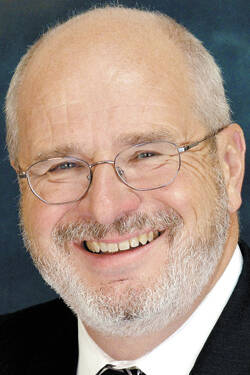For years, elected officials here have touted Indiana as “a state that works.”
They chose the word deliberately. For decades now, almost the entire focus of the state’s leaders has been on economic development.
Whether the argument was about education, the environment, marriage equality or public transit, the jousting focused on whether the policy question involved would attract jobs and investment in the state. Growth was the point and little else mattered.
Until now, that is.
As the just concluded session of the Indiana General Assembly and other recent incidents demonstrate, many — perhaps most — of the state’s leaders now have a new set of priorities. They’re more interested in fighting culture wars, settling old scores and finding ways to please narrow special interests.
Even the Indiana Chamber of Commerce indicated as much.
The chamber’s session-end report said the organization’s lobbyists spent more time and energy trying to knock down bad and growth-destroying ideas than they did advancing a jobs and development agenda.
The drama surrounding two high-profile bills illustrates the chamber’s point.
Indiana’s foot soldiers for the gun lobby worked tirelessly to push a measure through that would allow Hoosiers to carry firearms without securing permits.
The Indiana State Police and other law-enforcement officials opposed the bill. So, according to polling even in the districts of the lawmakers pushing the measure, did the public.
But the gun merchants wanted it.
That was enough for the gun lobby’s pliant legislators, who maneuvered and finagled to resurrect the bill in the session’s waning days.
Gov. Eric Holcomb, who is pondering a Republican primary contest in a U.S. Senate race two years from now, decided alienating the rabid gun wing of his party wasn’t worth it. He ignored his own state police officers and signed the bill into law.
After that, Indiana Rep. Jim Lucas, R-Seymour — the chief water carrier for the gun lobby in the state — took to social media to gloat and demand coverage from journalists, including me, over having the bill become law.
Police officers around the state, please feel free to send thank-you notes to Rep. Lucas. It is clear he is desperate for attention and acknowledgement of his determination to ignore you.
The governor vetoed another measure, one that would have banned transgender girls from participating in girls’ sports. This particularly mean-spirited bill sought to appease ignorant bigots at the expense of people who already have suffered more than their share.
Holcomb was right to reject it.
As soon as he did, though, the legislative leaders announced they would bring the lawmakers back into session at the end of May to override the governor’s veto.
That’s the thing about bigotry and meanness. They never rest.
While all this was going on, the state’s public access counselor ruled that Indiana Attorney General Todd Rokita must turn over requested records to conservative radio host, commentator and gadfly Abdul-Hakim Shabazz. Rokita has been engaged in a pointless and, at least to the taxpayers, expensive legal battle over whether he can ban Shabazz from press conferences.
The attorney general started this fight because Shabazz apparently hurt Rokita’s feelings.
In kindergarten, such disputes are settled by imposing a timeout. In Indiana politics these days, though, they are resolved by wasting time and money going to court.
As if all of this weren’t bad enough, U.S. Sen. Mike Braun, R-Indiana, who apparently is as thick as petrified brick, opined that it was a mistake for America to recognize interracial marriages.
After Braun’s comments provoked criticism for being racist — because they were racist — the senator tried to back away from them with all the grace of a rhinoceros trying to slip into a tutu.
All these episodes served small, narrow and even ugly agendas. Not one of them will create a job or bring a single cent to Indiana. None will move Indiana forward.
But that doesn’t seem to be the point for Hoosier elected officials.
A state that works? Hardly.





